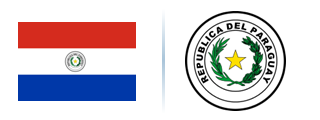Last Update: September 2025


| International Covenant on Economic, Social and Cultural Rights | International Convention on the Elimination of all Forms of Racism | Convention on the Rights of Persons with Disabilities | Convention on the Elimination of all Forms of Discrimination against Women | Convention on the Rights of the Child | International Convention on the Protection of the Rights of All Migrant Workers and Members of their Families | Constituent Agreement of the Development Fund for Indigenous Peoples in Latin America and the Caribbean |
| 10 June 1992 | 18 August 2003 | 3 September 2008 | 6 April 1987 | 25 September 1990 | 23 September 2008 | 1 December 1994 |
| View details | View details | View details | View details | View details | View details | View details |
Year of Latest Observed Constitution |
Social Housing |
Work and Social Security |
Public Health |
Public Education |
Social Development |
Children and Adolescents |
Youth/Young Adults |
Women |
Older Persons |
Persons with Disabilities |
Afrodecendants and Indigenous Peoples |
Migrants |
| 1992 | ||||||||||||
| View details | View details | View details | View details | View details | View details | View details | View details | View details | View details | View details | View details |
Children and Adolescents |
Youth/Young Adults |
Older Persons |
Women |
Peoples with Disabilites |
Afrodescendants and Indigenous Peoples |
Migrants |
Public Education |
Work and Social Security |
Social Housing |
Public Health |
Social Development |
|
| Legal Instrument | Código de la Niñez y de la Adolescencia | Decreto núm. 262 | Ley 1885/02 adulto Mayr | Ley de No Discriminación de la Mujer | Ley de los Derechos de las Personas con Discapacidad - Nº 3540 | Ley 904/81“Estatuto de las Comunidades Indígenas” - Art.32 | Ley Nº 978/1996, 'Ley General de Migraciones' | Ley General de Educación | Código del Trabajo | Ley de la Vivienda Social | Ley de Sistema de Salud | n.d. |
| Law | Law | Law | Law | Law | Law | Law | Law | Law | Law | Law |
| Country | Paraguay |
| Main authority | Gabinete Social de la Presidencia de la República |
| Year of creation | 2009 |
| Coordinating authority | Presidente(a) de la República |
| Members | El Gabinete Social es presidido por el Presidente de la República, quien podrá delegar la representación ante el Gabinete Social al Vicepresidente de la República. El Coordinador general y Jefe del Gabinete Social es el Ministro de Desarrollo Social.
Este colegiado está conformado por los siguientes organismos y entidades: Ministro de Desarrollo Social, Ministro de Economía y Finanzas, Ministro de Salud Pública y Bienestar Social, Ministro de Educación y Ciencias, Ministro de Agricultura y Ganadería, Ministro de Obras Públicas y Comunicaciones, Ministra de la Mujer, Ministro de Trabajo, Empleo y Seguridad Social, Ministro de Justicia, Ministro de Urbanismo, Vivienda y Hábitat, Ministro -Secretario General Jefe del Gabinete Civil de la Presidencia de la República, Ministro -Secretario Ejecutivo de la Secretaría de Emergencia Nacional de la Presidencia de la República, Ministra de la Niñez y la Adolescencia, Ministro de Tecnologías de la Información y Comunicación, Ministro Secretario Nacional de la Secretaría Nacional de Cultura de la Presidencia de la República, Ministro -Secretario Ejecutivo de la Secretaría Nacional por los Derechos de las Personas con Discapacidad, Ministro Secretario Nacional de la Secretaría Nacional de la Juventud, Ministro -Secretario Ejecutivo de la Unidad de Gestión de la Presidencia de la República, Director General Paraguayo de la Itaipú Binacional, Director Paraguayo de la Entidad Binacional Yacyretá, Directora General de la Dirección de Beneficencia y Ayuda Social, Coordinadora General de la Oficina de la Primera Dama de la Nación, Presidenta del Instituto Paraguayo del Indígena, Presidente del Instituto Nacional de Desarrollo Rural y de la Tierra, Presidenta del Consejo Directivo del Crédito Agrícola de Habilitación, Presidente del Directorio del Banco Nacional de Fomento. |
| Country | Paraguay |
| Main authority | Ministry of Social Development |
| Year of creation | 2018 |
| Mission | Tendrá por objeto el diseño e implementación de políticas, planes, programas y proyecto en materia de desarrollo y equidad social, mediante la coordinación interinstitucional de acciones tendientes a reducir las desigualdades y a mejorar la calidad de vida de la población en situación de pobreza y vulnerabilidad, con un enfoque a lo largo del ciclo de vida, fundado en los principios constitucionales y valores del respeto a los derechos humanos, justicia social, equidad, inclusión, solidaridad, sostenibilidad, igualdad de oportunidades y participación social. |
| Incumbent | Miguel Tadeo Rojas (2023) |
| Population segment | Children and Adolescents |
Youth/Young Adults |
Older Persons |
Persons with Disabilities |
Women |
Migrants |
| Main protection mechanism | Secretaría Nacional de la Niñez y la Adolescencia (SNNA) | Secretaría Nacional de la Juventud | Consejo de Adulto Mayor | Secretaria por los Derechos Humanos de las personas con Discapacidad | Ministerio de la Mujer | Dirección General de Migraciones |
| Legal Instrument | Ley 1680/01 Código de la Niñez y la Adolescencia (2001) | Decreto núm. 262 | Derechos de las Personas de la Tercera Edad | Ley 4720 que crea la Secretaría Nacional por los Derechos Humanos de las personas con discapacidad (SENADIS) | Ley Nº 978/1996, 'Ley General de Migraciones' |
|
Technical-operational dimension | |||||||
| Unique Registry of Participants | Sistema Integrado de Administración Financiera /b | Sectoral Plan for Social Development | Transparence - system for accessing public information from the State | Integrated Social Information System |
Evaluation mechanisms for social programs |
|||
General |
Sectorial |
General |
Sectorial |
|||||
| Ministerio de Desarrollo Social | ||||||||